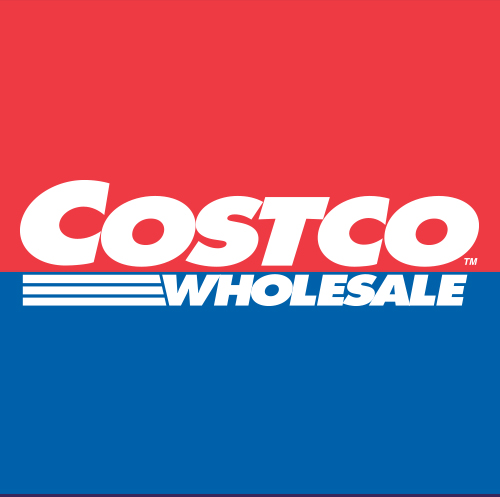Costco Wholesale (COST) Stock Analysis

Costco Wholesale Dividend
(updated 2/28/20)
The Costco Wholesale dividend has been paid continuously since 2004 and increased for 16 consecutive years; qualifying the company as a Dividend Contender.
Price: $283.00
Dividend Yield: 0.9%
Current Annualized Dividend: $2.60
Normalized Diluted Earnings Per Share (TTM): $8.38
Cash Flow From Operations (CFO) Per Share (TTM): $14.17
Free Cash Flow Per Share (TTM): $7.44
Special Dividends Paid:
$7.00 (5/27/17), $5.00 (2/09/15), $7.00 (12/18/12)
(This section under construction. I apologize for the inconvenience.)
Company (XXX) Intrinsic Value – Margin of Safety Analysis
(updated April 2020)
Intrinsic Value Range:
Mid-Point Intrinsic Value:
Implied Margin of Safety:
Projected 5 Year Annual Total Return:
Risk / Stability Grade:
A grade indicates a company with a strong balance sheet, a positive business environment, and solid dividend history.
B grade indicates a company with a good balance sheet, a stable business environment, and solid dividend history.
C grade indicates a company with a sufficient balance sheet and good prospects for maintaining its dividend policy.
D grade indicates a company in good standing but has issues that could affect its stability and long term risks.
F grade indicates a company with significant issues that are currently affecting its stability and long term risks.
Dividend Safety Grade:
A grade indicates an extremely low probability of a dividend cut. This rating is reserved for companies with strong balance sheets and/or excellent dividend histories.
B grade indicates a very low probability for a dividend cut.
C grade indicates a low probability for a dividend cut and/or average safety risk.
D grade indicates there are issues that should be considered concerning future dividend payments.
F grade indicates serious dividend safety risks. Investors should complete comprehensive due diligence before investing.
Earnings Quality Grade:
A grade indicates earnings quality is high or far above average.
B grade indicates earnings quality is good and/or above average.
C grade indicates earnings quality is acceptable or average.
D grade indicates earnings quality is poor and requires thoughtful due diligence.
F grade indicates the quality of the earnings is poor or far below average requiring serious due diligence.
Valuation Grade:
A grade indicates the stock price is favorable or offers an excellent long term value.
B grade indicates the stock price is favorable or offers an above average value.
C grade indicates the stock price is fair or at least offers an average value.
D grade indicates the stock price is expensive or represents a poor value.
F grade indicates the stock price is extremely expensive or represents a poor value.
Earnings Report: 3/05/20
Next Earnings Report: 5/2920
AAAMP Position Disclosures:
AAAMP Global Value – None
AAAMP Phoenix Balanced – None
AAAMP Dividend Growth & Income – None
AAAMP Treasure Trove Twelve – None
Dividend Value Builder Newsletter Membership (24 Issues) - $129/Yr.
Type of Investor / Recommendation
Large Diversified Dividend Portfolios / Average Option
Looking For Exposure to the Consumer Defensive Sector / Average Option
Deep Value Investors / Avoid
Company Description
Sector: Consumer Defensive
Industry: Discount Stores
The leading warehouse club, Costco has 762 stores worldwide (at the end of fiscal 2018), with most of its sales derived in the United States (72%) and Canada (15%) and a sizable presence in Mexico, the United Kingdom, and Japan.
It sells memberships which allow customers to shop in its warehouse stores, which feature low prices on a limited product assortment. Costco mainly caters to individual shoppers, but roughly 20% of paid members carry business memberships. Food and sundries accounted for 41% of fiscal 2018 sales, with ancillary businesses (such as fuel and pharmacy) 18%, hardlines 16%, fresh food 14%, and softlines 11%.
Costco’s warehouses average around 145,000 square feet; nearly 75% of its locations offer fuel. About 4% of Costco’s global sales come from the e-commerce channel.
SWOT Analysis
Strengths
The membership warehouse club business model allows Costco to concentrate on providing its members prices lower than any of their competitors. The fee model provides a stable base of revenue (annual retention is about 90%) that goes straight to the bottom line. This is a win-win for Costco members and the company.
Selling a limited number of rapid turning products in bulk quantities allows the company to operate at maximum efficiency. This concentrated approach gives Costco the same kind of purchasing power that its larger competitors enjoy.
Weaknesses
Historical revenue and earnings growth is probably unsustainable. Finding viable urban locations for large warehouse stores is challenging to say the least. Opening new stores in currently served markets may lead to cannibalization of sales and not really provide the new membership levels needed to drive future growth. In addition, competition from modern concepts such as Amazon keep margins at ultra thin levels.
Opportunities
The membership model and low margin environment means efficiency is the name of the game. Efficiency is a five-star attribute of Costco. An astounding $1200 per square foot of sales (vs. $600 for a typical Wal-Mart) provides Costco the opportunity to expand, keep prices low, deliver a great member experience, and continue to build it’s membership revenue.
Threats
A larger portion of sales coming from international markets may bring added risks to company revenues and profits. If membership attrition rates were to increase it could have a serious adverse affect on profits and growth rates.
Dividend Value Builder Newsletter
- Discover, Compare, and Evaluate Stocks Without Emotional Bias -
(Intrinsic Value Analysis For Over 300 Stocks)
Minimize Large Portfolio Drawdowns
Invest With Confidence In Less Time - Manage Your Portfolio Without Behavioral Errors
Disclaimer:
While Arbor Investment Planner has used reasonable efforts to obtain information from reliable sources, we make no representations or warranties as to the accuracy, reliability, or completeness of third-party information presented herein. The sole purpose of this analysis is information. Nothing presented herein is, or is intended to constitute investment advice. Consult your financial advisor before making investment decisions.
